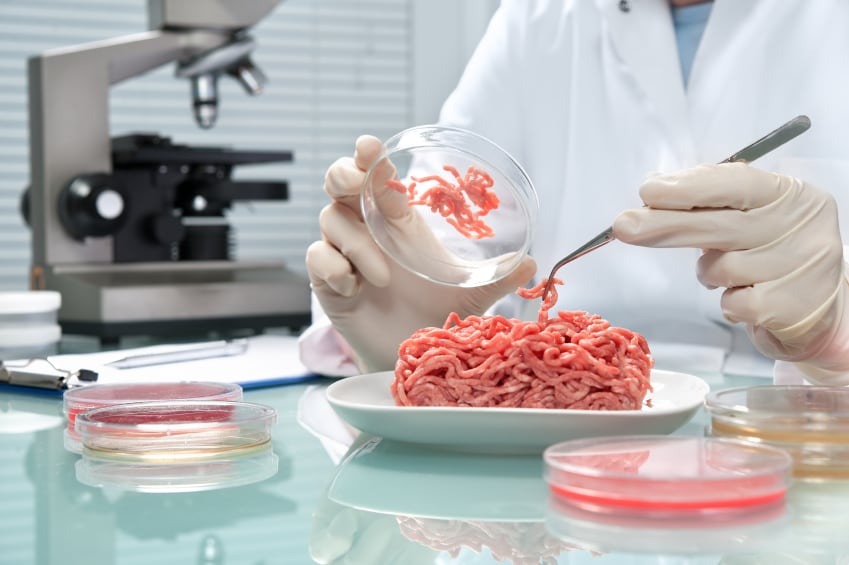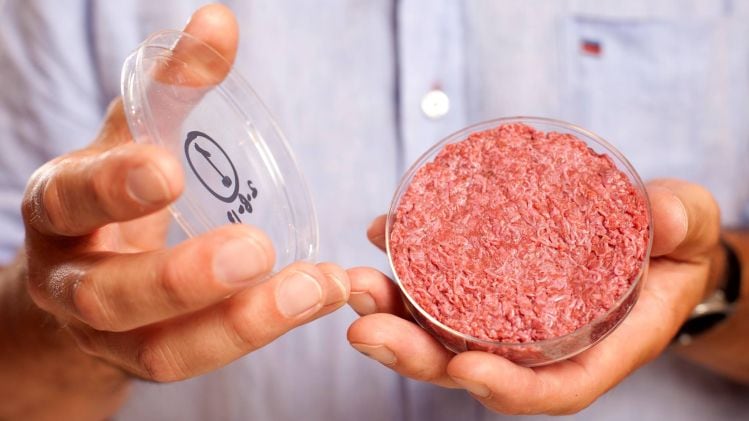Agricultural greenhouse gas emissions are responsible for around a quarter of current global warming. Replacing conventional cattle farming with 'labriculture' - meat grown in the lab using cell culture techniques - has been widely discussed as a way of reducing this environmental impact. However, fresh research questions whether this is indeed the case.
A comparative study by researchers at the Oxford Martin School looked at the greenhouse gases produced by lab-grown and farm-raised beef in the current energy system. It concluded that current lab-grown meat production methods cannot provide a “cure-all” for the detrimental impact of meat production on climate change without a “large-scale” transition to a decarbonised energy system
"There has been a great deal of public interest in cultured meat recently, and many articles highlight the potential for substituting cattle beef with cultured meat to provide an important climate benefit," explained lead author Dr John Lynch. “We show that it is not yet clear whether this is the case, partly because of uncertainties about how cultured meat would be produced at scale.”
The research, published in Frontiers in Sustainable Food Systems, found that while some projections for the uptake of particular forms of cultured meat could be better for the climate, others could actually lead to higher global temperatures in the long term.
The climate impact of cultured meat production is dependent on energy demands and the availability of low-carbon energy sources, Dr Lynch suggested.
Not all greenhouse gases are equal
Assessing the impact of different production methods, it is also important to understand the differences between greenhouse gases, Dr Lynch continued.
“An important issue in comparing farmed and cultured beef is that the different warming impacts of greenhouse gases are also not well accounted for in the standard measure used in carbon footprints,” he explained.
Assessments based on carbon-dioxide equivalent footprints can be misleading because not all greenhouse gases generate the same amount of warming or have the same lifespan.
"Cattle are very emissions-intensive because they produce a large amount of methane from fermentation in their gut," study co-author Raymond Pierrehumbert, Halley Professor of Physics at the University of Oxford, noted.
"Methane is an important greenhouse gas, but the way in which we generally describe methane emissions as 'carbon dioxide equivalent' amounts can be misleading because the two gases are very different. Per tonne emitted, methane has a much larger warming impact than carbon dioxide, however, it only remains in the atmosphere for about 12 years whereas carbon dioxide persists and accumulates for millennia. This means methane's impact on long-term warming is not cumulative and is impacted greatly if emissions increase or decrease over time."
Replacing methane with CO2 would have ‘detrimental long-term consequences’
To provide a “rigorous comparison” of the potential climate impacts of lab-grown meat and beef cattle, the researchers examined available data on the emissions associated with three current cattle farming methods and four possible meat culture methods, assuming current energy systems remained unchanged.
Using this data, they modelled the potential temperature impact of each production method over the next 1000 years.
This modelling showed that while cattle initially have a greater warming effect through the release of methane, in some cases the manufacture of lab-grown meat can ultimately result in more warming. This is because the warming caused by accumulated carbon dioxide would persist, whereas warming caused by methane ceases after only a few decades.
"Reducing methane emissions would be good - and an important part of our climate policies - if we simply replace that methane with carbon dioxide it could actually have detrimental long-term consequences," warned Dr. Lynch.
Both cultured meat and cattle farming have complex inputs and impacts that need to be considered in fully appreciating their effect on the environment. For example, creating more grazing land for cattle can result in deforestation that could greatly increase the CO2 footprint of cattle systems. Meanwhile, the researchers postulate, producing food in urban laboratories could free up land for carbon sequestration or other purposes.
"The climate impacts of cultured meat production will depend on what level of sustainable energy generation can be achieved, as well as the efficiency of future culture processes,” Dr. Lynch concluded.
Source
‘Climate Impacts of Cultured Meat and Beef Cattle’
Frontiers in Sustainable Food Systems
Date: 19 February 2019
DOI: https://doi.org/10.3389/fsufs.2019.00005
Authors: John Lynch* and Raymond Pierrehumbert




